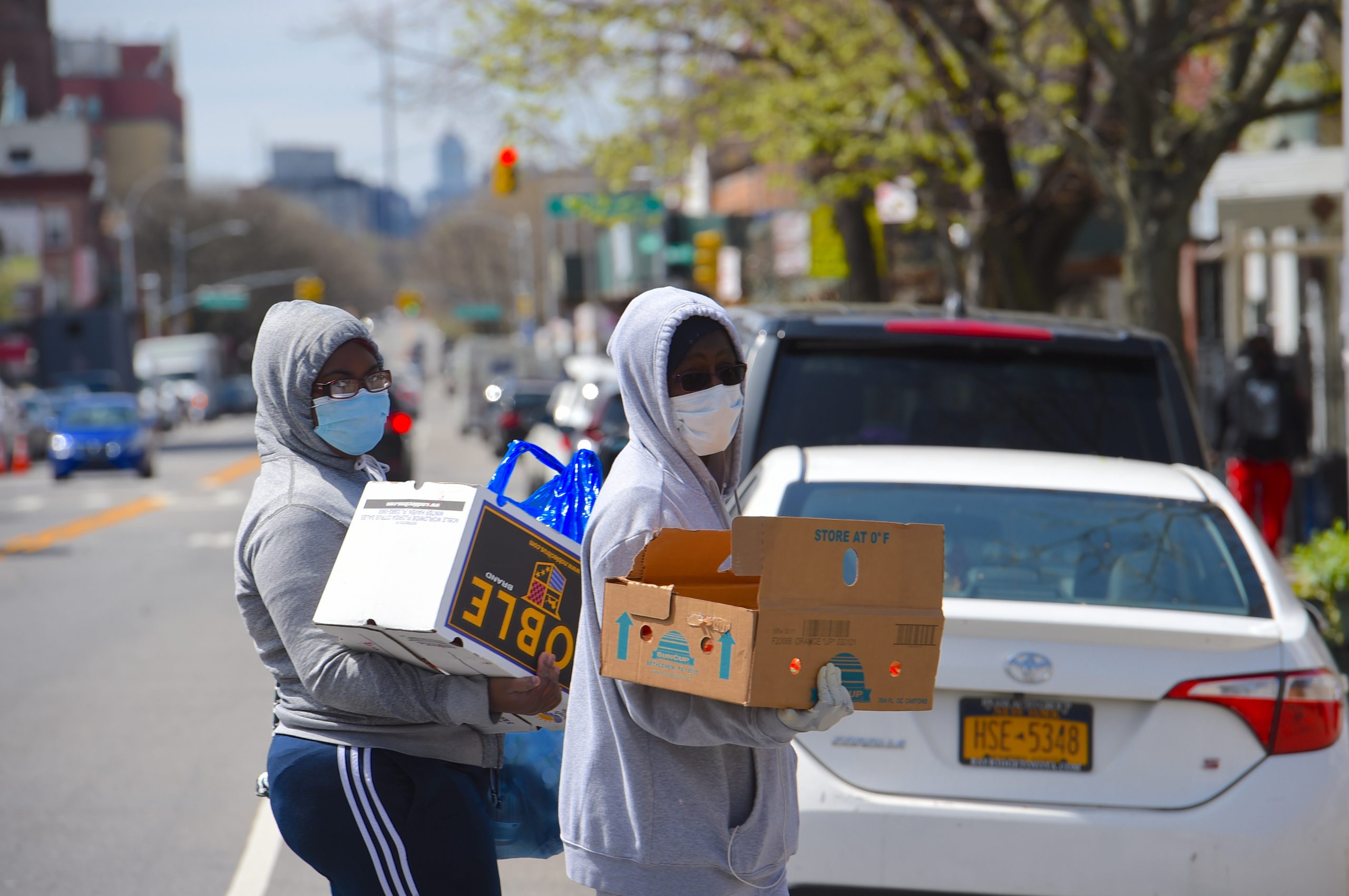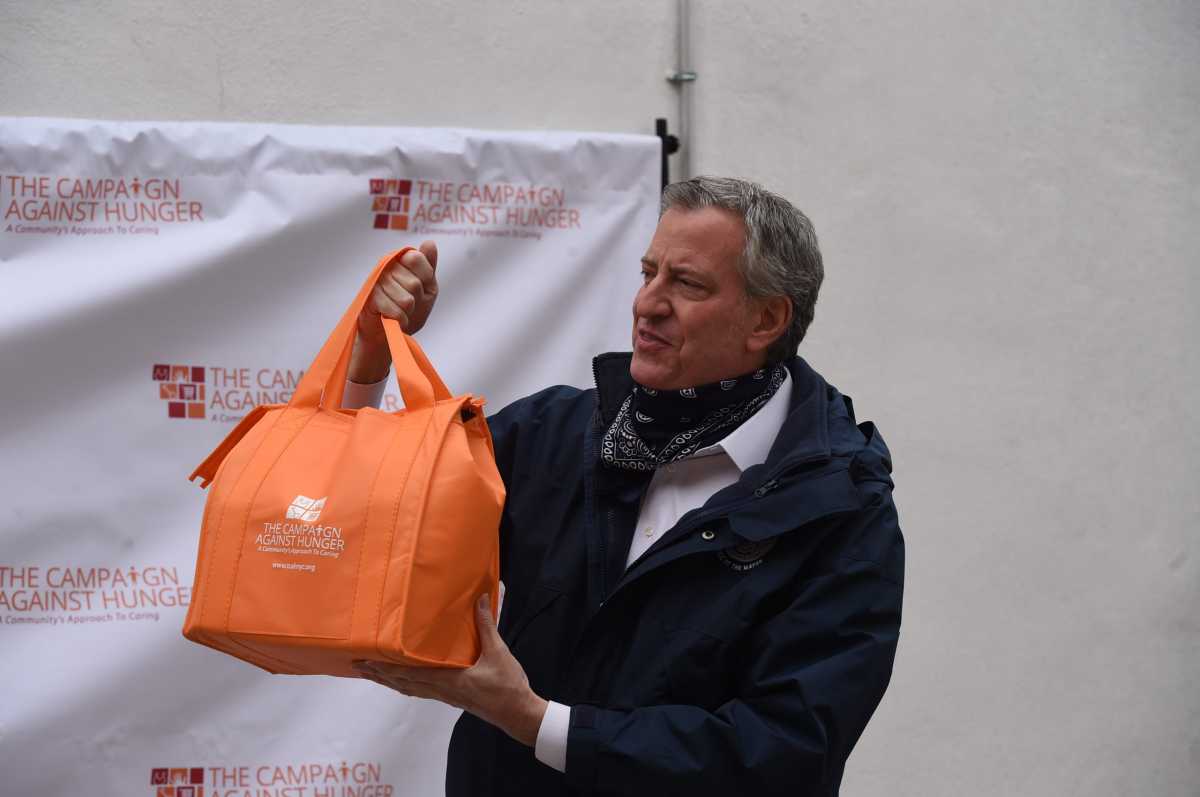Mayor Bill de Blasio stopped by a Brooklyn food pantry to promise employees and volunteers that the city would do everything in its power to help them four days after he announced a $25 million initiative to fund emergency food providers.
A third of the city’s food pantries and soup kitchens have had to shutter their doors because increased food prices or lack of staff either because they have fallen ill or unable to leave home to work because of the novel coronavirus pandemic.
“Each one of you is a hero…without you some families go hungry, with you families have enough to eat,” said de Blasio to a socially distanced crowd of masked workers. “History has been telling us that this is the greatest health crisis in a century, it is the greatest economic crisis in 80 years.”
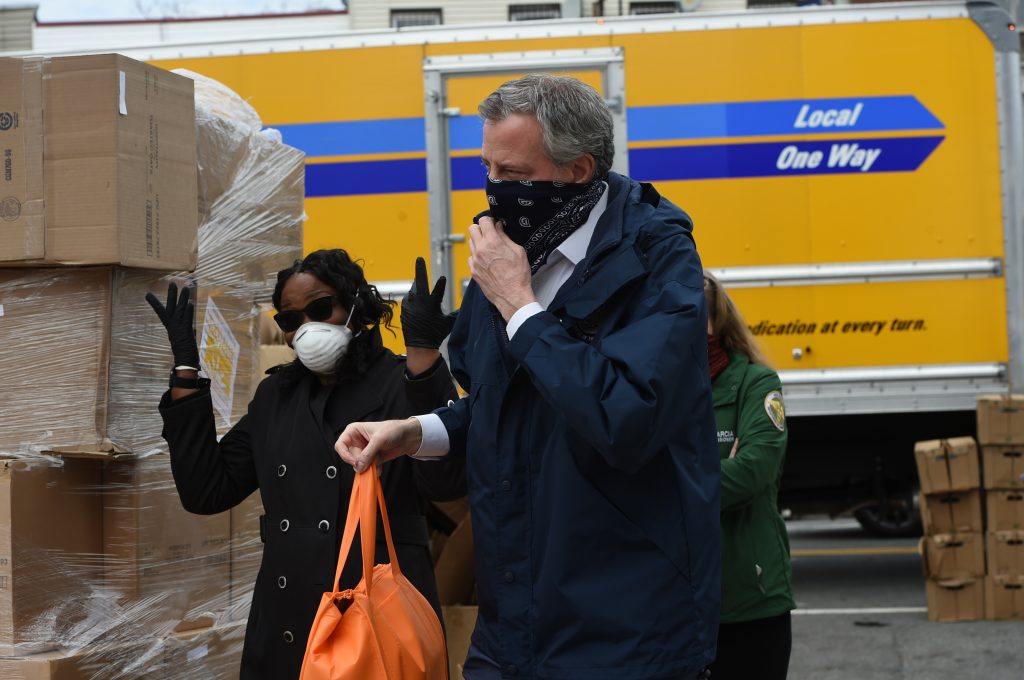
The mayor again described the novel coronavirus pandemic as a battle which all New Yorkers are needed to do their part to stop its spread.
“Whatever you need to feed people, you will get it…we are going to keep fighting,” de Blasio added. “It’s not going to be days, it’s not going to be weeks. It’s going to be months before this is all over, but we will not let anyone go hungry.”
This week alone, the Campaign Against Hunger will feed over 6,400 families, said Founder and Executive Director Melony Samuels, who said that the nonprofit is developed a disaster response to the pandemic.
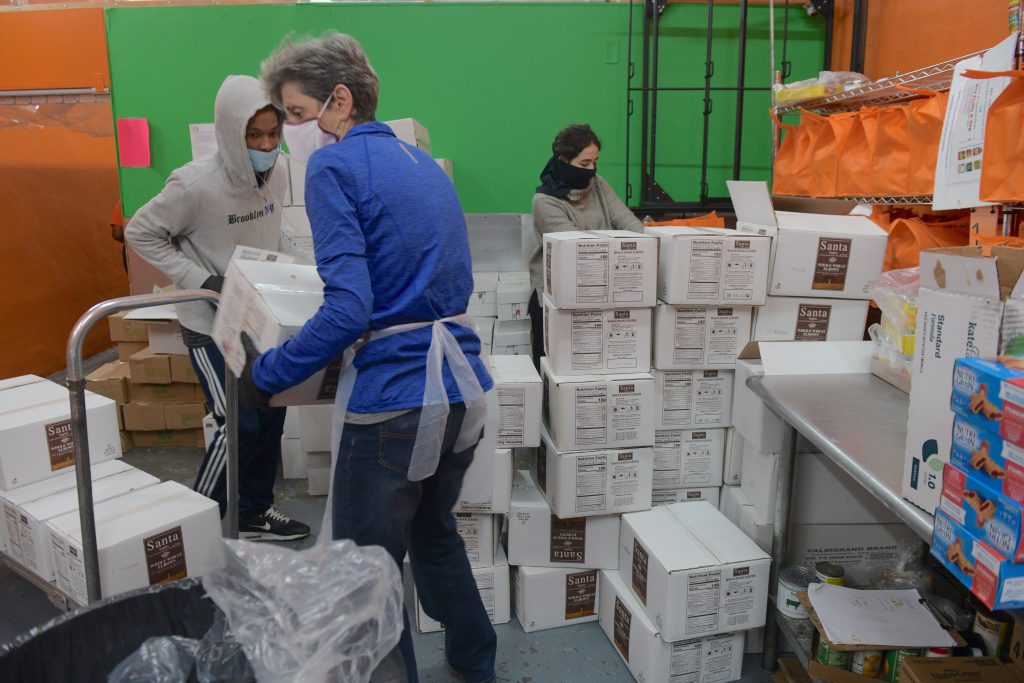
While workers stacked boxes of produce, bread and juice of the Brownsville pantry, a line of people formed that stretched the block. Normally, about 200 to 300 people a day stop by the food pantry to pick up staples but since the novel coronavirus pandemic caused thousands to lose their jobs that number has nearly doubled, Samuels said.
One Brooklyn woman in line, Deborah Calloway, is now living in shelter since as a result of losing her job at a beauty parlor shortly shortly after social distancing order in the city was placed. Tuesday was her third time visiting the pantry, and she was thankful that there was a enough food to give to families waiting that day.
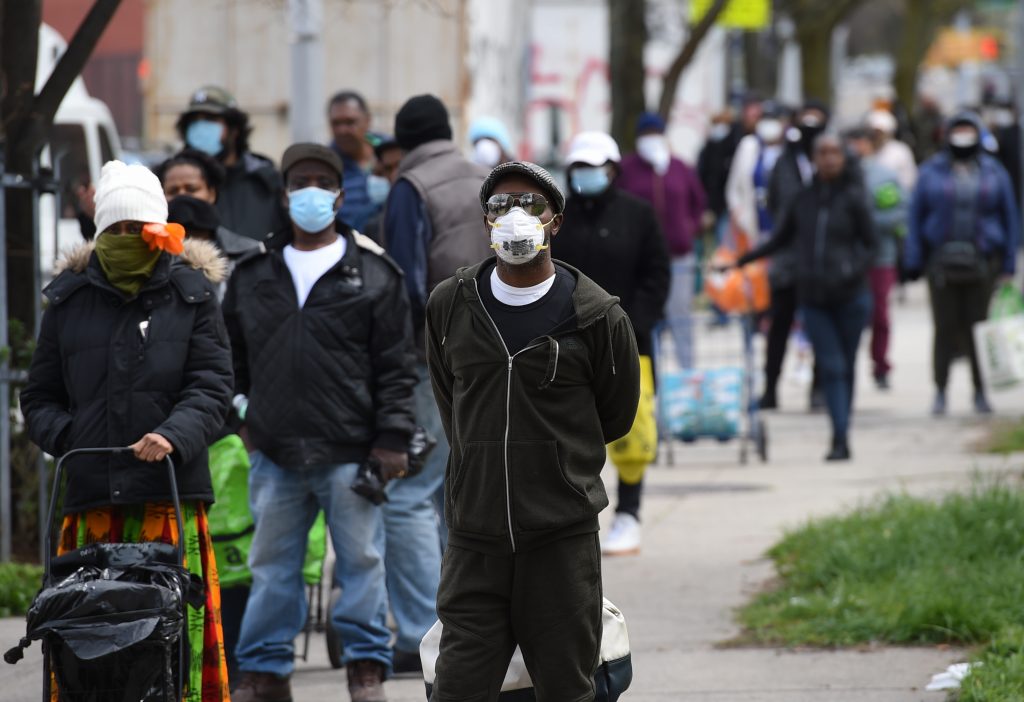
She wasn’t just picking up food for herself — a common occurrence at food pantries.
“I know two families that need to be here, in East New York, but this is too far for them to come,” said Calloway.
She said that her neighbors, lower-income and sick, had called 311 to see where the closest food pantry in their neighborhood. They were directed to one but the process to get food was arduous.
“It’s not like this one. You had to online, get a ticket, be there early, and then come back,” Calloway added. “So I am here to help. Whatever I can get is for me and for her.”
